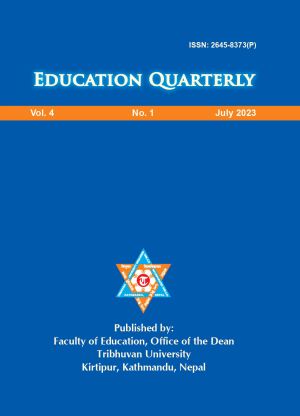Teachers’ Knowledge and Practice of Using ICT Tools in High School Science Teaching and Learning
DOI:
https://doi.org/10.3126/jeqtu.v4i1.57246Keywords:
Competency, impact, tools, traditional, transformationAbstract
Information and communication technology (ICT) tools are the integral part of innovative science teaching. Effective uses of ICT tools play a vital role in teaching and learning in this era. This research was done to analyze the level of expertise and practice of using ICT tools among teachers in classroom teaching. The study is based on quantitative descriptive design. Four municipalities and 16 schools were selected randomly. Fifty science teachers were selected on the basis of census sampling from Siraha district. The collected data were evaluated by utilizing statistical tools which indicates that most science teachers have inadequate access to ICT tools and have moderate knowledge and practice of handling them. All teachers used mobile phone and internet for personal purpose but ICT tools practices were poor in an integrated science classroom. The traditional lecture-based pattern of teaching, lack of ICT-specific knowledge and practice, content-based knowledge of teachers, aged teachers, inadequate ICT infrastructure and lack of ICT-friendly environment are the major barriers to the transfer of ICT teaching-learning process. The study suggested that there is the need for conducting of ICT based educational training, and preparing the teaching guidelines for regular use of ICT tools.




